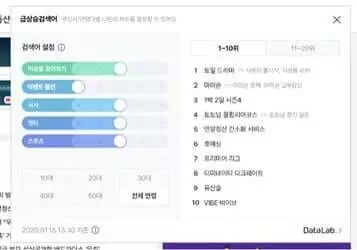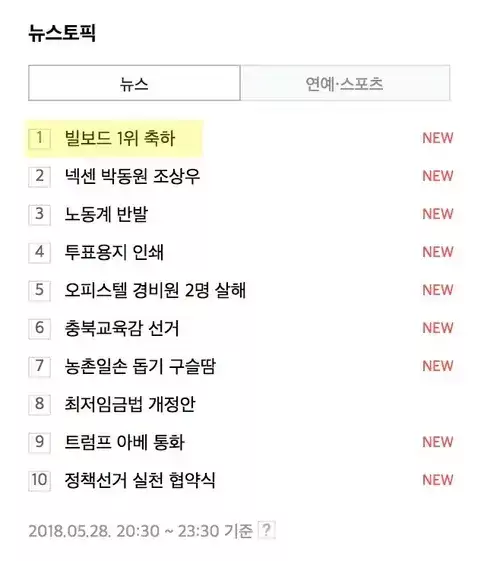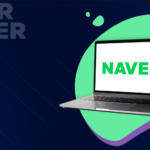Naver, the preferred search engine for Korean internet users, has removed its “real-time search” service on February the 25th. Since its first introduction in May 2005, this service has been driving controversy, but the feature wasn’t discontinued until 2021, 16 years later.
The “rising search terms” was a chart in Naver that highlighted trending topics in real-time. The top searches would appear on the portal main page reaching a large number of users.

Naver Co. remarked that the reason for the removal of this feature was to secure the diversity of information. “The way users behave on the internet has changed a lot in recent years” Naver stated when announcing the change. “Now users choose content that is relevant for their tastes and preferences instead of consuming content that is unilaterally given to them, so it’s very important to produce that content.”
The online portal, which draws 30 million users every day, was previously criticized for using the “rising search terms” tool to manipulate public opinion in political and economic matters. There have been a few scandals over the years and Naver made previous efforts to control the usage of the tool. In fall 2019, Naver tried to be more inclusive in the rising search terms, expanding the amount of trending topics from 10 to 20 and applying AI technology to personalize searches catered to the user interests, but finally they decided to remove the section for good.

This decision aligned with Kakao Corp., which operates the smaller local rival Daum. Daum removed its real-time searches in February of 2020.
The “rising search terms” and Search Intent in Naver
In terms of SEO, the removal of the Naver feature is good news, since over the years was prone to advertisements or being used as an instrument to drive public opinion. The tool also heavily affected the user’s search intent.
Search intent is a very important concept in SEO, and a key element to making websites rank high on major search engines such as Google. It is the why behind a search query. Why the user made the search? Do they want to learn something? Buy something? Looking for a website?
As a search engine, Naver has the responsibility to organize information online and make it accessible and useful, but the “rising search trends” were pushing information to people unilaterally, and, sometimes, with the intention to deceive the user. Removing the service is an opportunity for users to take full control of their own searches.

In summary
Google, the largest search engine in the world, takes pride in providing users with the most relevant results for the user’s query. This is a huge part of the success of Google as a business and sets the search engine apart from its competitors such as bing, whose results pay little attention to the user intent.
Recently, Naver has also taken other other steps to align its functionality and layout to Google’s, such as last November’s algorithm change, when the portal launched its “Universal SERP”.





